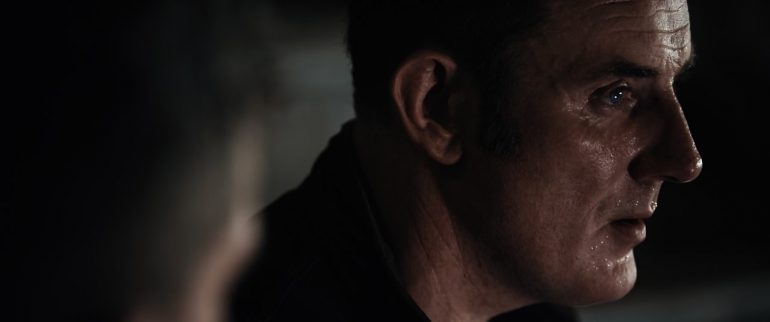Fellow Glaswegian Bryan Larkin recently starred alongside Donnie Yen in the box office smash Chasing the Dragon but he has also been hard at work on a new trilogy of short action films called Dead End where he plays a mysterious hitman known as The Contractor.
Bryan sat down with me recently and we chatted about the movies and working on Chasing the Dragon.
How long did it take for the first Dead End to go from concept to completion?
I think it was about a year from when I originally decided I was wanting to shoot something in Hong Kong; so, we got a team together, we scouted the locations and we had a script so from concept to completion was about 10 months. The reason why it took so long was I did have a finite amount of time in Hong Kong; I knew we would be leaving Hong Kong after Chasing the Dragon was over and I knew that I would be going back at some point. So in that gap between December and April I knew I was going to be going to LA for pilot season and then I knew I’d be going back to London. I wrote the film with that in mind and that this character would have an international journey and that became part of the development process.
How did you find shooting in Hong Kong?
As a place it’s got so much to it; there’s such a diverse landscape there from the Peng Chau Islands to like Central Hong Kong and Kowloon. It’s a really, bustling, busy and zestful place; I was just captivated by that landscape but then the practicalities of shooting there there’s so much red tape and you’d be waiting forever to get permission. You just have to try and plan things the best you can and there were a lot of happy accidents; along the way there were a lot of things that we really wanted to shoot but it just wasn’t practical or safe and it’s not worth taking that risk. Most cases we would settle for what was a priority like we wanted to take in the landscape of this place so a drone would be a really good tool to immediately drop the world into that cityscape. Along the way there was an occasional market street or the party district; we thought if we just walk up with the camera it’s such a small, lightweight DSLR they’ll just think you’re taking selfies or a tourist. We would quickly walk and talk and block it out then see how it goes live. So that’s how we did it; particularly on the first film it was a lot easier to shoot because it was predominately set at night; we’re all in dark leather jackets walking through the streets and it was almost like found footage in many ways.
“There were three or four people maximum on set at really any time.”
We’d get one take and we’d have to do it again if it wasn’t in focus, but we discussed quite in-depth asking things like “what is the best-case scenario? What happens if someone gets in the way? Do we just start again?” but we were fortunate enough that we were in this really busy precinct in this bustling city where people were just going about their business while we were shooting incognito throughout them. That was kind of how it went; we were very lucky. We didn’t have a big crew; there were three or four people maximum on set at really any time. Now when I say “set“ I mean you and your friends and an actor, a director and a camera operator saying “that looks like a cool location, let’s discuss how we’re gonna do it” then we shot it and then we would move on. It all really came together in post; if you’ve got an idea for a scene and you know it’s going to involve a lot of the public in the background you’ve just got to say to yourself “in the event that this happens we’ll do that” then try it and then you get money on screen there because the world is your canvas. You don’t have any restrictions and you don’t have any half-hour resets; you’ve just gotta take a chance and that’s exactly what we did and that’s how Dead End as a series has survived. It’s really just a case of going out and doing it.
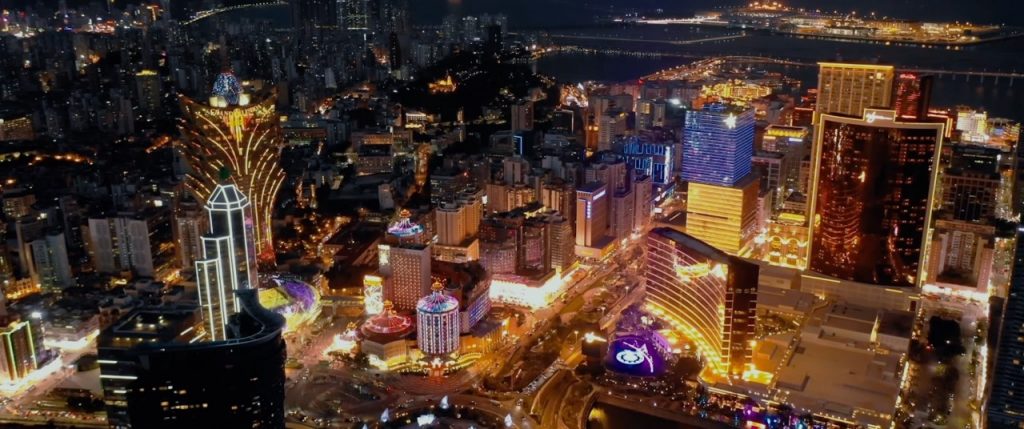
Hong Kong feels like a character itself; would you say that’s true?
Very much, yeah. I had never been to Hong Kong before and I think it’s interesting as a filmmaker when you are inspired by a new city it’s a complete culture shock – the language barriers, to the canvas, to the people who live their lives there, the hustle and bustle; it was almost like a fresh perspective in the film so I wanted it to feel like this character was a fish out of water because when you see something for the first time it inspires you. It can be so different from where you’ve been before that you try to find a way for it to be as prominent as possible. When you are new to a city it is almost like a new character in your life; you’re engulfed by your surroundings. The thing about Hong Kong being a character in this whole thing was for me when I look at it as a city, I look at that broad canvas and it’s almost intimidating in many ways and when you look at those skyscrapers it almost feels like there are so many untold stories happening beneath these clouds. This is just the tip of the iceberg for what can happen in a place like that.
“When you see a neon cascade like that it fills you with a sense of wonder”
So that was front and centre in my mind that it’s just such a broad wonderful canvas and it just jogs the imagination into thinking there’s a huge part to play in the city. Big cities do that I find; when you see a neon cascade like that it fills you with a sense of wonder like what’s really happening on the ground. So anywhere we pointed the camera was like a movie set; what you see there is Hong Kong as it really is in the real world without any set decoration or anything like that other than what you see in the movie. That became a big part of the movie was the character of Hong Kong; the city lights, the neon cascade, the rats in the traps, the narrow thin alleyways, the pallet of colours where these people were just there so that became a big part of the movie as well where it feels like every cut invites you into a corner of the world that you would never really see unless you’d been there.
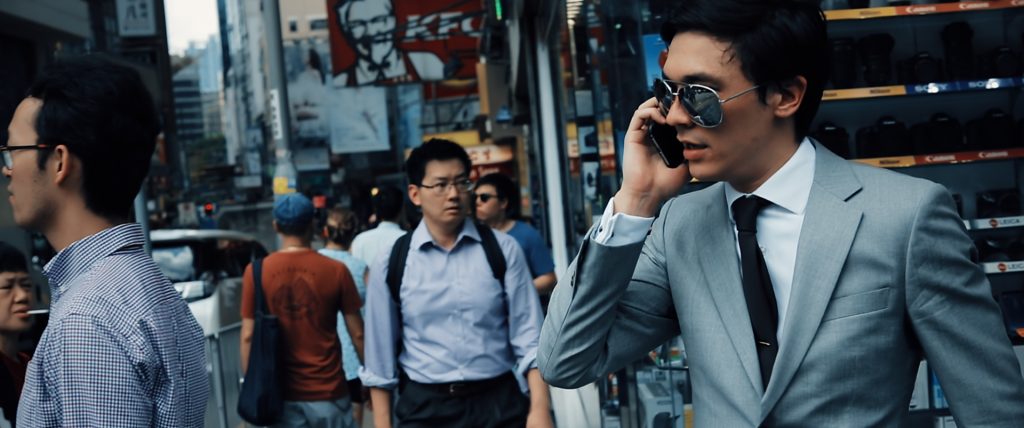
How do you find working on Hong Kong movies compared to Western fare?
To give you a concise answer to that I could say Chasing the Dragon took me completely out of my comfort zone in a way that I’ve never experienced before. It is a former British colony; most people speak English but for me as the majority of the cast were Asian actors, I was a bit intimidated. I was wondering how I was going to fit into it and where does my character in this over 200 people cast fit? how do I deliver? How do I give the best of me? I didn’t actually get to read a script before I took the part; I just knew that I was gonna be the main villain against Donnie Yen. There wasn’t an English language version of the script available so when I turned up on set I didn’t have any lines other than placeholder dialogue where we have one line and then someone will say something and then you say the line but that’s not how I would say it. I would probably say it like such and such and they were encouraging of that. The boundaries and the latitude I would have within a scene was almost devised in a way where the Chinese actors knew what they were going to say but didn’t know what my character was going to say which was part of the whole role anyway is that my character never spoke the language. He was just this kind of bullish, boisterous controlling character. Imagine looking down on a British set where there are unions, departments and everyone’s got their place in their department in the job that they do.
When it comes to Hong Kong everybody muscles in; the camera departments are helping the make-up, make-up is helping the wardrobe department and so on. If you had a bird’s eye view, they are like ants just everybody mucking in working for the common goal and creating great cinema. There’s something very fresh and collaborative about that where you look at the cinematography of some of these Asian movies and the way that they come together with so much passion and so much energy so it’s very different from working in the US or UK. It’s a lot more outside of my comfort zone where I didn’t know what was going to happen next but as an actor as soon as you accept that you can almost feel as if your contribution is going to be as valued as anybody else’s. Jason Quan and Donnie Yen said “we want you to contribute as much to this role as anybody that we don’t entirely know the conflict between these characters, and we want you as an actor to contribute where you think your character is coming from.
You’ve not only got to rock up and improvise you’ve got to embody something that is being developed as you’re doing it. It’s a very organic process and I wasn’t quite sure how much of what I did would end up in the movie but they kept everything and that was one of the many things about it; it’s a lot faster; there’s very little rehearsal time; the attention to detail including set decoration, cinematography and the precision of the action is like nowhere else I’ve ever worked. They’re very fast and very, very hard working; long days and the humidity doesn’t help especially when you’re Scottish.
Yeah, we never get used to that.
We never get used to it, you know? That’s one of the things about working in Asia is that humidity; it can really play on your energy levels and affect your concentration but it’s all just part of it.
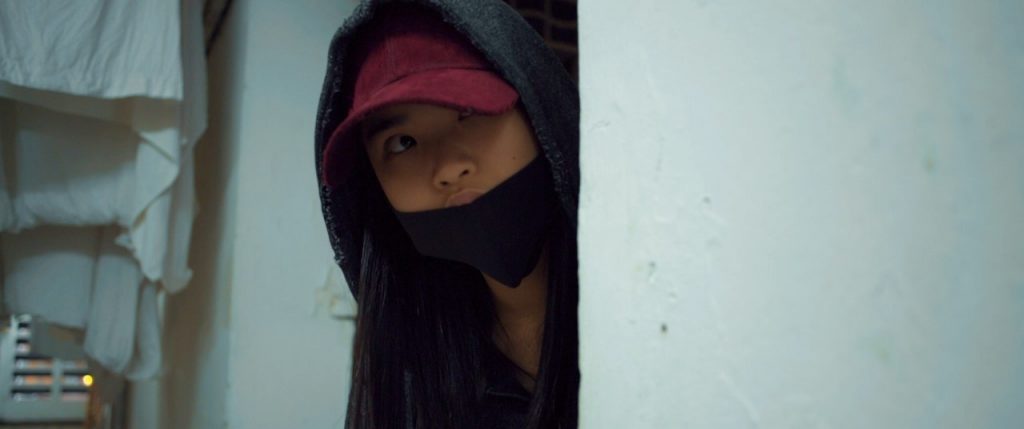
So back to Dead End; if someone asked you to make it into a feature length film would you want to and be able to do that?
Absolutely! The thing for me at the moment is that there’s been a bit of interest from various sources that have read the scripts. Some people have read the scripts for all three and have not seen the movies and they’d like to see a 1-hour pilot of it like a pitch to see what the big picture is. There has also been interest with regards to doing a feature film and also doing it as episodic television. So, the main thing for me is to try and package them as potentially very expandable either television (limited series), a movie or anything else like short form content. I do at the moment have an outline but I’m waiting for parts 1-3 to be all finished and edited and I’m going to sit down with Derek Newlands who’s my business partner with Hybrid Films and we are going to develop Dead End further. We’ll also be working with Black Camel Pictures who are a Glasgow based production company run by Kieran Parker and Arabella Page Croft and have supported us since the beginning.
So we’ll discuss what’s the best case scenario here to use bits of all three or use more of two and three or little bits here and there. I know how I would like a feature film to end; I’ve basically already written a perfect last scene of what this would be if it was to be a movie. It’s something that I’m working towards at the moment. To say anymore just now really wouldn’t help but I have a very solid idea about what the bigger picture is; it’s not what you’ve been watching so far. When you see the third film it becomes a lot clearer as to what the stakes are. What I’ve seen so far is a Queen Bee up compared to where it could potentially go. When the third movie is over it opens up another world and Julian and my characters are up against it and in the shit. We have to redeem ourselves, so we go out in kind of a blaze of fire as it were. In a word yes, I would love to turn this into a feature film and I’m already kind of working on it but it’s such an expandable world and there’s more characters in the third film.
We’ve got Fen Fen Kuan from Operation Red Sea; she’s playing one of the main villains of the film. We’ve also got Rebecca Yeo who was in Stan & Ollie; she was also in The Strangers which Paul Andrew Williams directed. Then we’ve got Greg Burridge who was in Avengement but also in Vengeance 2. It’s a slightly longer film; it’s more of a thriller. It’s not quite as action-based but it starts to answer a lot of questions that’ll be asked in the second film. There’s a lot of talk and a lot of latitude but I’m a do-er; I like to make things happen so stay tuned.
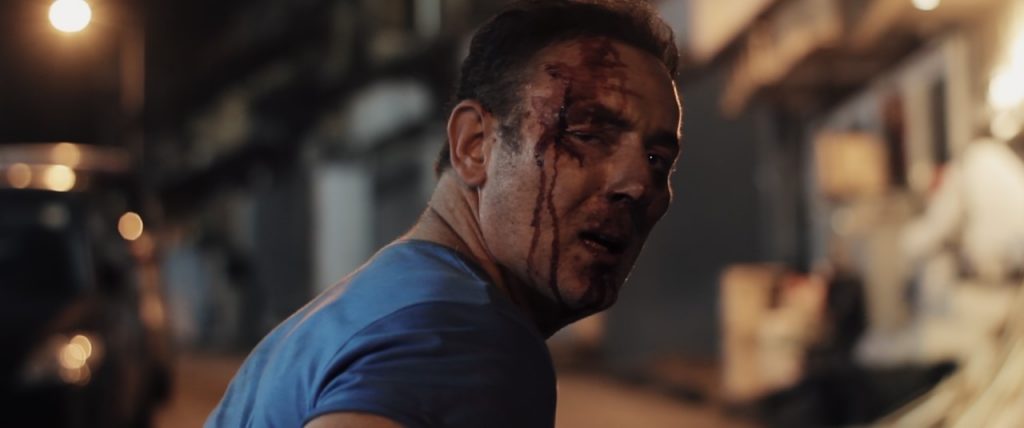
Any other international locations you’d like to take future entries?
Oh, there’s so many places; there’s places I haven’t even been that I’ve been told I should go. I’m going to Japan very soon for a project for a couple of weeks. Yes, I will be taking my camera as well as my drone and my phone. You never know; I might end up shooting some more footage for Dead End: The Feature Film. I’ve been to some amazing places in my life, but I just think it’s a big world to be explored and the more that you can put on film the better. I guess that’s one of the main appeals about Dead End is that it goes international; going from London to Glasgow and even the Scottish Highlands in Part Three. If you have any recommendations or if any of your readers do, then please fire them over (laughs).
You can never go wrong with Italy; Rome is my favourite city in the world, so I think everything looks good when filmed there.
Well you never know; I’ll put it on the list.
How do you keep action scenes exciting and different while working on a budget?
In answering that question you’re saying that what we did is quite exciting then? (laughs)
Yeah, I thought so (laughs)…
The thing was in the second film in particular we didn’t have a budget or a stunt crew to do a car chase. So, when you think about a set-piece like that in a movie some of them purely for action whether it’s Tom Cruise flying a jet in Maverick or Dwayne Johnson & Jason Statham driving a car off a cliff, all that stuff costs a lot of money and a lot of special effects with thousands of people involved. What we try and accomplish is the same sentiment of velocity, speed, high emotions and high octane; any opportunity you can get to do that on a low budget I would take it. Obviously, it has to be safe, so we opted for a foot chase and as I say we don’t have the budget for these big explosions and all that but what we tried to do was map out something that was in its own way as exciting as a big car chase or explosion. When you’ve got the money, you can do anything but if you don’t then you have to think I guess laterally and think “well what is my environment and what is the most interesting and action-packed thing we could shoot?” and it was a foot chase. You also need a good fight; we’re never gonna be as good as Donnie Yen and have the same skills like we could have with Scott Adkins in the movie.
We have to shoot something that’s real and gritty but combine it with an emotional element”
We have to shoot fast, we have to shoot something that’s real and gritty but combine it with an emotional element. Something that’s not just about guys beating the shit out of each other. When you’ve seen one really great fight scene then you’ve seen a lot. The thing about the budget is to use your environment; use your tools the best you can, and I guess do the “poor man’s action movie” which would be a foot chase or a really good fight. Something real that makes you feel like an observer in the situation. I guess that’s why we opted for a foot chase. It was either that or a motorcycle chase; Julian is actually a motorcyclist, so we thought about doing something like that; even if it was just one minute on camera but then you look at what they did in The Villainess that I think John Wick 3 ripped off was the motorcycle chase with the swords.
We could never dream to get anywhere close to that quality because we don’t have the stunt teams. That’s what it all boils down to so why not do something that we can do? Everybody can run and nowadays with the camera that we were shooting on and the tools that were available to us you could go on a skateboard or even a bike and still keep up with the action.
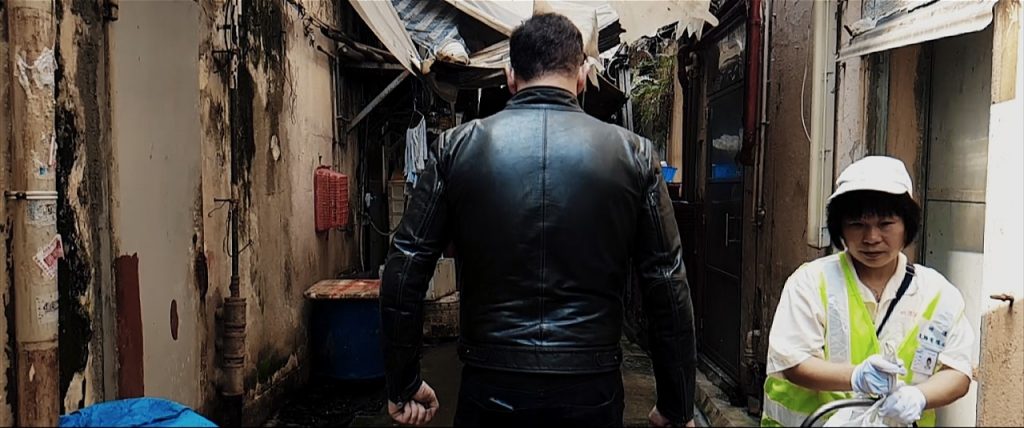
I loved the foot chase as I prefer smaller more intimate action scenes as you get more emotionally involved…
Intimacy is the exact word; intimacy is key and it’s all about what you feel. You want to feel as if you are there with the actors and you don’t get that with a big car chase. Everything that’s happening with the characters at that moment is what you are trying to capture. So, the closer you can get a camera to someone’s face while they’re running for their life or fighting for something they believe in particularly in a situation like a busy street market then that’s a lot more interesting to me. We just tried to keep it honest that way and put something there; I would do the foot chase again in a heart beat. There are things I would do if I had more money; we had some drone footage of the foot chase but we couldn’t use it. Any opportunity to get the drone out I would use it to follow them during the foot chase but there was already more than enough footage there. I guess we could use it in the movie later…
What can genre fans expect from Dead End III?
Well Ross Boyask is directing, and he directed Vengeance 1 and 2; a lot of people in the UK know who Ross is and even internationally. I was initially going to direct but it just wasn’t viable, and Ross was the natural choice. I asked him and he said yes; he enjoyed the first and second films very much but what can you expect from it? Well it’s a very different film; it’s more of a suspense/character driven thriller. There’s a lot of tension in it; there’s not a lot of dialogue and I think the first film was a kind of existential introduction to the characters and the second is more action-based with obviously the emotional journey of the young girl.
The third film is more of a suspense thriller so we’re ticking all the boxes here. It’s shot very differently but is more of the Sicario end of what you can expect from the hitman genre. There’s a lot of questions that will be answered. It’s not an entire conclusion of the series; not everything is tied up because every episode leaves you wondering how the next one will begin. What I can say is that it’s a direct continuation from Dead End: Part II. It starts off two weeks after we leave Chloe on the bridge and me and Julian are lying low after what happened in Hong Kong in Part II. I think it’s potentially going to be the best one purely because it’s not an obvious action film; again it’s rooted in character and following the journey of The Contractor who is my character. I think it’s going to be a great final film in the trilogy. Where we go from there who knows?
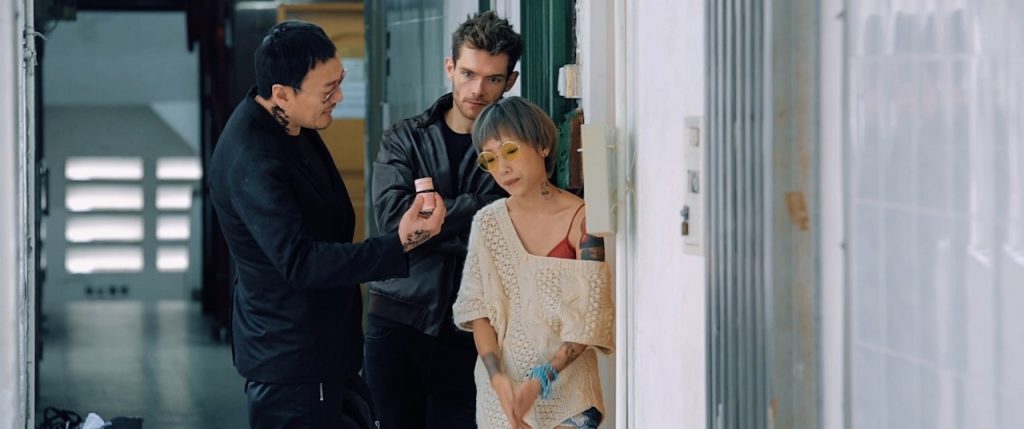
Any plans to direct again in the future?
Absolutely! I would love to! In terms of definite plans I don’t have anything that’s imminent but there is a project that I wrote last year that I was looking to potentially do. I’m going to be playing the lead in this film as well and it’s a proper budget movie that I would be writing and directing. It depends how much money we can raise for it; we’re looking at a budget of about 5 million. It’s very difficult for a first-time feature film director to get that kind of money for their first movie. What’s got people interested is Dead End II so people can see that I can direct, produce and act. When you’re dealing with other people’s money, they need a little more persuasion. The short answer is I’m definitely open to it as a possibility, but nothing has been confirmed.
What kind of training do you do for Dead End?
I train 4 days a week minimum; I do a lot of stretching. I love doing free weights obviously; I’ve got a bodybuilding background. I was the junior Scottish bodybuilding champion about 20 odd years ago. It really depends on the demands of the project and I normally start 6 weeks out. I also do a lot of kicking and boxing from time to time. I have a karate background so I still maintain my roots there; I don’t compete, but I can handle myself. I do a lot of bodyweight exercises just to keep myself limber and ready. I don’t think I would have survived in Hong Kong if I didn’t have the fitness routine in place. It was very hard work and I think that you just have to be ready. One thing I also like to do is meditate as that’s where I think my roots and my energy comes from. I was only introduced to it over the past couple of years but it’s helped me stay focused and helps with the creativity and mindset required for being a filmmaker.
What would you like audiences to take away from the Dead End Trilogy?
Everyone has a responsibility in this world and it’s shouldered mainly by Julian’s and my characters; what we’re doing is we’re killing people and we’re not playing the judge and the jury. We’re doing bad things but for a good reason. I think when people get to see a bigger project here and after they have watched the three films together that we’re not bad guys and we’re not good guys. They’re just doing their job to try and make the world a slightly better place by removing a lesser evil from it. I think we all have a responsibly as people to try and make the world a better place nowadays. I think the world is going to shit in many ways; we are quite accepting for all the lies we are told by politicians and the craziness that’s going on in Syria and places like that. It’s not an easy thing to do as the world is run by people who don’t care what we think. If we all are just a little more aware of what’s going on about us and try to give a little bit more then the world can be a better place. I guess that’s what the second film is about – no matter what we do in the world it affects everybody and Chloe’s character is a very good representation of that. The young girl who becomes empowered by the deeds of evil men. There’s a bigger world at play beyond what we see day to day. I just think there’s more going on here rather than just two hitmen killing people and getting paid. Basically just love each other a little bit more and hope that the Contractor and Young Gun don’t come after you.






